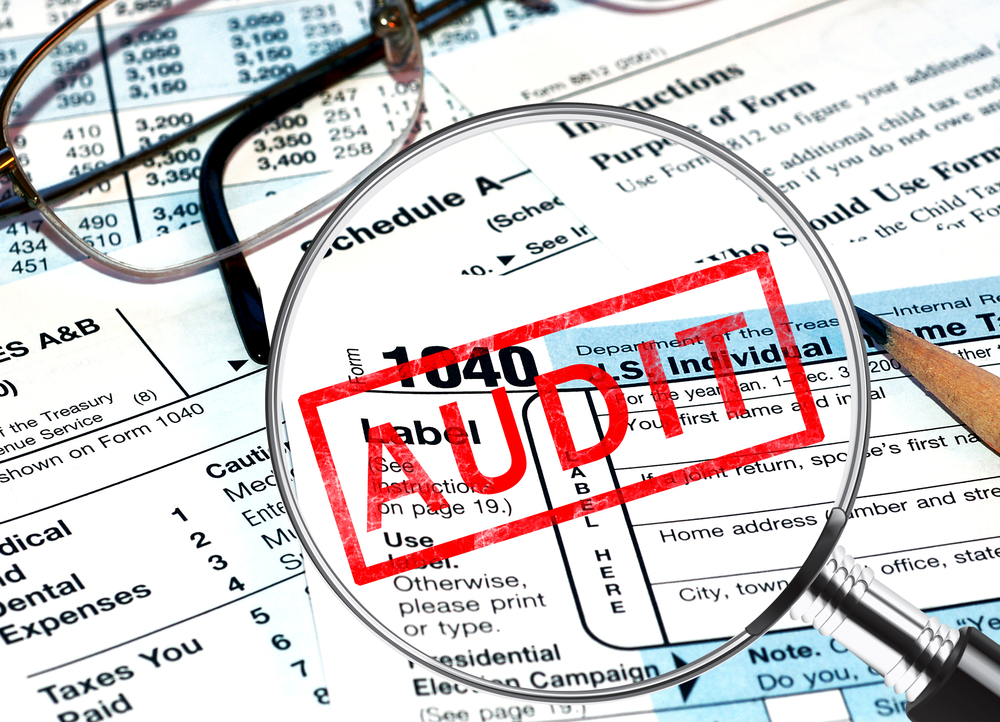Increased Tax Audits May Be Approaching: What You Need to Know
- Jul 19, 2021
 Receiving noticed from the IRS that you’ve been selected for a tax audit can be a cause of great anxiety for taxpayers, and unfortunately, your odds of being audited in the near future could be going up. The IRS is currently making a big push for increased tax audits and hiring thousands of new auditors. Here’s what you need to know about this enforcement push and how it might affect you.
Receiving noticed from the IRS that you’ve been selected for a tax audit can be a cause of great anxiety for taxpayers, and unfortunately, your odds of being audited in the near future could be going up. The IRS is currently making a big push for increased tax audits and hiring thousands of new auditors. Here’s what you need to know about this enforcement push and how it might affect you.
Why the Increase in Auditors?
Why, exactly, is the IRS hiring thousands of new auditors at the moment? Over recent years, funding (and, consequently, staffing) at the IRS has steadily declined. This has decreased the frequency of tax audits year by year, as they’ve often been too short-staffed to perform frequent audits. However, in June, President Biden secured a tentative deal with senators on a $579 billion infrastructure plan, which would include $40 billion for expanding tax audits.
In anticipation of that expansion, the IRS has already begun to hire thousands of new agents—specifically, 2,000 new workers in their small business unit, 1,300 revenue agents, and 500 personnel for their criminal investigations division. This indicates that a great deal of the tax enforcement push will likely be focused on business owners, and presumably on high-income earners as a whole.
Will Audits Turn Up Unpaid Taxes?
Current estimates suggest that this investment into IRS audits will have a great financial benefit for the US government. Should Congress be able to pass their bipartisan infrastructure investment plan and proceed with increased audits as planned, it’s estimated that the IRS could provide $100 billion in net new tax revenue. Other estimates put the number even hire. IRS Commissioner Chuck Rettig told a Senate committee earlier this year that he believes the gap between owed taxes and taxes paid could exceed $1 trillion for this year alone. That’s an incredible amount of unpaid taxes and missed revenue for the government.
Who’s Most Likely to Be Audited?
As we already mentioned, the increased tax audits are most likely to target high-income earners (those who make over $100,000 a year) and small-business owners. Additionally, shareholders in limited partnerships will also be more likely to be targeted for an IRS audit. If you fall into any of these categories, it’s a good idea to have a CPA filing your tax returns. Not only are your returns more likely to be accurate, but we can represent you in the event of an audit, making the process much easier and less stressful for you.
Red Flags to Avoid on Your Tax Returns
In addition to the three categories mentioned above, there are certain “red flags” that tax auditors are trained to look for on tax returns that can often trigger an audit. While there is no guaranteed way to insulate yourself from an IRS audit, avoiding these red flags can help to reduce your likelihood of being selected for one:
- Home office deductions – This is the most-audited deduction out there, because many taxpayers abuse it. If you work from a home office, it’s extremely important that you only use that office space for business purposes. Even having your child do their homework on your office computer once a week disqualifies you for this deduction. If you hope to take this deduction, make absolutely certain you qualify, and be prepared to support that claim in the event of an audit, because it will be much more likely to happen with this deduction on your tax return.
- Very high charitable contributions – Another deduction many taxpayers abuse is charitable contributions. If your charitable donations are very high, keep meticulous records and ensure that you’re not overestimating the value of any donated items. Claiming a very high deduction for donations is more likely to trigger an audit for you
- Mathematical errors – Mistakes happen, but you don’t want them to happen on your tax return. It’s important to double check that all the columns on your tax forms add up properly. If the IRS notices a miscalculation, you’ll be more likely to receive an audit notice, simply so they can get all the right numbers for you.
- Missing sources of income – Many people think that income from private sources can go unreported, but the IRS often has ways of detecting those hidden sources of income. Even if you were paid in cash or via personal check, report your income in its entirety to avoid an audit.
There are no guaranteed ways to avoid an IRS audited, and with the upcoming push for tax enforcement, it’s more important than ever that you’re prepared should an audit come your way. Contact the IRS Advocates today to learn how we can help make the auditing process easier for you.
STOP THE IRS!
Settle for less & Protect your assets
Never Call the IRS without Speaking with our Pros First!